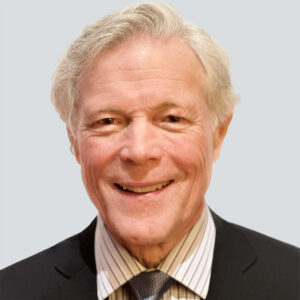In graduate school, I ate Total cereal for breakfast every day. Never knowing if or when my next meal might be coming—the hazard of being a musician—I liked heading off to a day and evening of studying and practicing with 100% of all my daily nutritional requirements already met. But my wife expressed skepticism about Total’s nutritional claims.
Determined to defend General Mills (and my own judgment!) against this attack, I undertook copious research, which was no small task in those pre-internet days. I was led to a cereal exposé in Consumer Reports. Imagine my excitement upon reading “Total indeed contains 100% of our daily nutritional requirements…” and my disappointment when it went on to explain “…but none of them are in a form the human body can assimilate.”* Oof! (My wife was right, but I counted it as a draw because, technically, Total did have those nutrients…)
Like General Mills, teachers painstakingly pack 100% of students’ daily content needs into well-crafted lectures, yet, sometimes almost none of that content is in a form the human mind can assimilate. In Why Don’t Students Like School?, Daniel T. Willingham, a cognitive scientist, asserts “Memory is the residue of thought.” In other words memory, and therefore, learning, only occurs when students think.
Delivering Food for Thought
Sadly, very little thinking takes place during a lecture. Thinking takes time and effort: “our cognitive system is always struggling to make sense of what we’re reading or hearing, to find relevant background knowledge that will help us interpret the words, phrases, and sentences” says Willingham. Our brains can’t perform these tasks effectively or completely while drinking from a fire-hose of content during a lecture.
The limited capacity of working memory—where thinking takes place—is quickly exhausted in a lecture. If Willingham is correct in asserting that “students [only] remember what they think about,” and if lectures don’t permit students the time and mental space required to think about all the material being consumed, then learning suffers.
Total Content, Delivered
Given the fact that lectures do not cause much student learning, can lectures have any value? Yes, under a few conditions:
- Focus on mini-lectures of less than ten minutes. Highly effective learning results from the presentation of short bursts of new knowledge or concepts, followed by posing a question or problem on which students can chew individually and/or collaboratively (as in a think-pair-share exercise). This approach affords students time to think before consuming more material, and it enjoys the celebrated learning benefits of interleaving.
- Offer videos of full lectures for use outside of class. Videos permit students to work through the material at their optimum pace (differentiated learning), to pause and process in smaller chunks, to interleave their work with other tasks, to look up related terms and concepts (just-in-time learning), and to repeat as necessary. Video lectures also conserve class time for deeper learning activities (e.g., application) where students have access to materials, equipment, space, collaborators, and teacher guidance.
- Watch the students. How are they doing with what we’ve asked them to do—including sitting and listening to us talk? Do we have evidence that they are learning? If we’re watching our students for evidence of learning, at least we’ll learn how to better catalyze it.
These three approaches help students digest the intellectual nutrition that teachers dispense in their lectures.
* The article went on to suggest that eating the box might be more nutritious (which, of course, I thought was kind of piling on).

